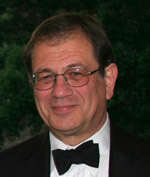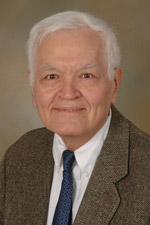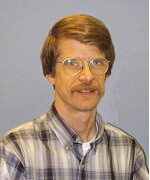Date: May 19th - May 21st, 2008
Location: Ferst Center
The 15th Annual Spring Research Conference (SRC) on Statistics in Industry and Technology was held May 19-21, 2008. The conference took place in Atlanta, Georgia. It was hosted by the School of Industrial and Systems Engineering in the Georgia Institute of Technology.
The purpose of the Spring Research Conference on Statistics in Industry and Technology is to promote research in statistical methods that address problems in industry and technology. This focus is to be interpreted broadly to cover a wide range of application areas including manufacturing and information sciences. The conference is intended to stimulate interactions among statisticians, researchers in the application areas, and industrial practitioners. It will provide a forum where participants can describe current research, identify important problems and areas of application, and formulate future research directions.
Program
The PDF of the SRC 2008 program can be downloaded here.
May 19, 2008 :: Monday :: 8:30 to 9:00
Welcome Session
Paul Kvam, Program Committee
Andrew Booker, SRC Program Chair
Mark G. Allen, Georgia Tech Senior Vice Provost for Research and Innovation
May 19, 2008 :: Monday :: 9:00 to 10:00
Plenary Session 1
Chair: Paul Kvam
Low effective dimension in models or data: a key to high dimensional inference?
Peter Bickel
May 19, 2008 :: Monday :: 10:30 to 12:00
Invited Session 1 – DOE Computer Experiments
Chair: Derek Bingham
Inference from combining detailed computer simulations and experimental data
Dave Higdon
A Flexible Method for Constructing Designs for Computer Experiments
C. Devon Lin
A Computational Approach for the Identification of Pollution Source Directions
Shane Reese
Invited Session 2 – Reliability
Chair: William Meeker
Bayesian Assessment of Repairable System Reliability and Availability
Mike Hamada
Analysis of Window-Observation Recurrence Data
Huaiqing Wu
The application of statistical kinetics to reliability: status and current research problems
Michael Luvalle
Contributed Session 1 - Statistical Computing I
Chair: Russ Lenth
SiZer for Time Series Using Estimated Autocovariance Function
Kee-Hoon Kang, CheolWoo Park, Jan Hannig
Binary Time Series Modeling with Application to Adhesion Frequency Experiments
Ying Hung
Robust Estimation for Spatial Markov Random Field Model
Shu-Chuan Lin
Application of Statistical Estimators to Expanding Pareto Fronts
Heping Liu, Alice Smith, Haluk Yapicoglu, Gerry Dozier
May 19, 2008 :: Monday :: 13:00 to 14:30
Invited Session 3 – Modeling Credit Risk Portfolios in Retail Banking
Chair: Agus Sudjianto
Credit Portfolio Modeling in Retail Banking and Its Statistical Challenge
Agus Sudjianto
Recent Advances in Default Risk Modeling Based on Vintage Data
Aijun Zhang
Semiparametric Modeling of Macroeconomic Drivers to Credit Performance
Shuchun Wang
Contributed Session 2 – Design of Experiments I
Chair: Roger Longbotham
Sliced Space-Filling Designs
Peter Qian
A Simple Orthogonal Blocking Strategy for Mixed Irregular Designs of Strength Two
Eric Schoen
Partially Clear Two Factor Interactions for Fractional Factorial Designs
Ryan Lekivetz
Two-stage Group Screening for Computer Experiments
Hyejung Moon, Thomas Santner, Angela Dean
Contributed Session 3 – Special Data Analysis
Chair: Abhyuday Mandal
Omnibus Tests for Comp. of Competing Risks with Covariate Effects via Additive Risk Model
Yichuan Zhao
Detecting Changes in the Mean of Functional Observation
Robertas Gabrys
Regression Modeling for Computer Model Validation with Functional Responses
Xuyuan Liu
StatWeave: Flexible Software for Literate Programming in Statistics
Russell V. Lenth
May 19, 2008 :: Monday :: 15:00 to 16:30
Invited Session 4 – Machine Learning
Chair: Agus Sudjianto
Evidence Contrary to the Statistical View of Boosting
David Mease
Estimating Conditional Quantiles with Support Vector Machines
Ingo Steinwart
Learning without the Loss
John Langford
Invited Session 5 – Multi-scale Modeling
Chair: Lance Waller
Gaussian multiscale spatio-temporal models
Marco Ferreira
Linking Environmental and Health Data from Different Spatial Scales: A Case Study from Florida's Environmental Public Health Tracking Initiative
Carol Gotway Crawford
Contributed Session 4 – Design of Experiments II
Chair: Peter Hovey
Testing the Significance of Predictors via Link Free Method
Peng Zeng
Row-wise Complementary Designs
Chien-Yu Peng, Shao-Wei Chang
Bayesian Optimal Single Arrays for Robust Parameter Design
Lulu Kang
G-SELC: Optimization by Sequential Elimination of Level Combinations Using Genetic Algorithm and Gaussian Processes
Abhyuday Mandal
May 19, 2008 :: Monday :: 17:00 to 18:30
Invited Session 6 – Industrial Experiments: Recent European Advances in Design
Chair: Sue Lewis
Design issues in Stated Preference Experiments
Martina Vandebroek
Experiments in blocks for a non-normal response via generalised estimating equations
Dave Woods
Optimal designs for models with potential censoring
Jesus Lopez-Fidalgo
Contributed Session 5 – Statistical Process Control
Chair: Jun Ye
A Multivariate Robust Control Chart for Individual Observations
Asokan Mulayath Variyath
Note on the CUSUM Charts for Uys and Lombard
Charles Champ, Allison Jones-Farmer
Control Charts for Spatial Data
Scott Grimshaw
A Comparison between SCAN and CUSUM for Detecting Increased Rates of Poisson Observations for On-line Monitoring
Sung Won Han
May 20, 2008 :: Tuesday :: 8:30 to 10:00
Invited Session 7 – Health Process Monitoring
Chair: Henry Rolka
Recent Background and Influences on the Direction of Research in Public Health Biosurveillance
Henry Rolka
Bridging the Gap Between Statistical Research and Public Health Practice in Infectious Disease Surveillance
Howard Burkom
Research in Public Health and Disease Surveillance
Kwok Tsui
Contributed Session 6 – Design of Experiments III
Chair: Peter Qian
Random Design Space for Lung’s Retention Model
Mariano Amo-Salas, J. Lopez-Fidalgo, J.M. Rodriguez-Diaz
Challenges to Online Experimentation
Roger Longbotham
A Computational Algorithm for Searching for Optimal Orthogonal Arrays for Estimating Main Effects and Some Specified Two-factor Interactions
Dong Hong Wu, Boxin Tang
Multi-objective Optimal Experimental Designs for Event-Related fMRI Studies
Ming Hung Kao
May 20, 2008 :: Tuesday :: 10:30 to 12:00
Invited Session 8 – Statistical Analysis and Design
Chair: Abhyuday Mandal
An Experimental Design Approach to Process Design
Martha Grover Gallivan
Spatial pattern and process: Assessing spatial performance of spatial models
Lance Waller
Statistical issues in the development of an automotive on-board diagnostics
Stephano Barone
Invited Session 9 – DOE Computer Experiments
Chair: Peter Qian
Data-Driven Nonstationary Modeling of Deterministic Computer Models
Max Morris
Orthogonal Nearly Latin Hypercube Designs
David Steinberg
Design of Computer Experiments: Does size matter?
Jason Loeppky
Contributed Session 7 – Medical Applications
Chair: Scott Grimshaw
Choosing the Number of Repeats when Characterizing an Isotope Identification Algorithm
Thomas Burr, Michael Hamada
Kanedall’s Tau Type Rank Statistics in Genome Data
Moon Su Kang
Different Methods, Similar Approaches: Geostatistical Analysis and Sparse Principal Component Analysis in Testing the Activation of fMRI Time Series
Jun Ye
Identifying Active Region for the Brain via Social Network Modeling in Multiple Subjects
Ana Moura Bargo
May 20, 2008 :: Tuesday :: 13:00 to 14:30
Invited Session 10 - Technometrics
Chair: David Steinberg
Statistical Methods for Fighting Financial Crimes
Agus Sudjianto
Statistical Challenges in Modern Biosurveillance
Galit Shmueli
Contributed Session 8 - Reliability
Chair: Ben Haaland
Prediction Intervals for Remaining Life of Power Transformers Based on Left Truncated and Right Censored Lifetime Data
Yili Hong, William Meeker
On Proximity of Weighted and Exponential Distributions
Broderick Oluyede
Monte Carlo Conditioning on a Sufficient Statistics, with Application in Reliability
Bo Lindqvist
Enhanced Monte Carlo Estimation of High Reliability Systems
Peter Hovey
May 20, 2008 :: Tuesday :: 15:00 to 16:30
Invited Session 11 – Analysis of Supersaturated Design
Chair: Brad Jones
Analyzing Supersaturated Designs via Model Selection Methods - Do They Work?
William Li
Supersaturated Designs: Our Results Aren't Significant
Robert Mee
Invited Session 12 – Nanotechnology
Chair: Tirthankar Dasgupta
Sequential Minimum Energy Designs for Synthesis of Nanostructures
Tirthankar Dasgupta
A Statistical Approach to Quantifying the Elastic Deformation of Nanomaterials
Xinwei Deng
Contributed Session 9 – Statistical Computing II
Chair: Robert Parody
Sequential Quasi-Monte Carlo Sampling Construction and Applications
Ben Haaland, Peter Qian
Feature Selection for Imbalanced Learning
Minghua Zhu, Zhonglin Lin, Wenjun Yin, Jin Dong
Penalized Linear Methods for Estimation and Variable Selection in Index Models
Jian Zhang, Michael Zhu
A One-step Transformation Method to Generate a Random Vector
Wheyming Song, Wenchi Chiu, Dave Goldsman, Boray Huang
May 20, 2008 :: Tuesday :: 17:00 to 18:00
Plenary Session 2
Chair: Kwok Tsui
Nanogenerators: from designed nanomaterials synthesis to energy harvesting
Zhong Lin Wang
May 21, 2008 :: Wednesday :: 8:30 to 10:00
Invited Session 13 – Traditional DOE
Chair: Boxin Tang
Multi-stratum Fractional Factorial Designs
Ching-Shui Cheng
On determining support points of locally optimal designs for nonlinear models
John Stufken
Existence and construction of two-level orthogonal arrays for estimating main effects and some specified two-factor interactions
Boxin Tang
Contributed Session 10 – Design of Experiments IV
Chair: Broderick Oluyede
Nonparametric Bootstrap Inference on the Improvement in a Response Surface
Robert Parody
Robust Confidence Intervals for the Bernoulli Parameter
Chiajung Chang, Wheyming Song
Discriminant Analysis with Interval Constriants (DAIC)
Heeyoung Kim
The Hybrid Biased-Bootstrap
Mihai Giurcanu
May 21, 2008 :: Wednesday :: 10:30 to 11:00
Plenary Session 3
Chair: Jeff Wu
Quantified Margins of Uncertainty: Error bars for Simulation Based Design
James Glimm
Featured Plenary Speakers

Peter Bickel
Professor of Statistics
University of California, Berkeley
Peter Bickel is past President of the Bernoulli Society and of the Institute of Mathematical Statistics, a MacArthur Fellow, a COPSS prize winner, and a member of the American Academy of Arts and Sciences and of the National Academy of Sciences. Dr. Bickel uses asymptotic theory to guide the development and assessment of semiparametric models. His studies of hidden Markov models are directed toward understanding how well the method of maximum likelihood performs. He is also interested in the bootstrap, in particular in constructing diagnostic measures to detect malfunction of this technique. Recently he has become involved in developing empirical statistical models for genomic sequences.

James Glimm
Distinguished Professor, Dept of Applied Mathematics and Statistics
University at Stony Brook
James Glimm has been noted for contributions to C*-algebras, quantum field theory, partial differential equations, fluid dynamics, scientific computing,the modeling of petroleum reservoirs, and geometric models for structural biology. Dr. Glimm received a 2002 National Medal of Science. The honor - one of the most prestigious in academia for researchers who make major impacts in fields of science and engineering through career-long, ground-breaking achievements - is given for work that spawned many advances in scientific theory and developments leading to new technologies. Glimm was honored for his work in shock wave theory and other cross-disciplinary fields in mathematical physics.

Zhong Lin Wang
Regents' Professor
Director, Center for Nanostructure Characterization
Georgia Tech
Dr. Wang received his Ph.D in Physics from Arizona State University in 1987. After a year of post-doctoral in the State University of New York at Stony Brook in 1988, Dr. Wang was awarded a Research Fellowship by the Cavendish Laboratory, University of Cambridge, England. He received a U.S. Department of Energy Research Fellowship at Oak Ridge National Laboratory in 1989, and one year later he was appointed as a Research Associate Professor by the University of Tennessee. In 1993, he moved to the National Institute of Standards and Technology (NIST) to set up the microscopy facility. He joined Georgia Tech in 1995.

Max Morris
Professor of Statistics & Professor of Industrial Engineering
Iowa State University
Max Morris has a joint appointment at Iowa State University as Professor of Statistics, and Professor of Industrial Engineering. He held previous positions at Oak Ridge National Laboratory, Mississippi State University, and the University of Texas Health Sciences Center at San Antonio. He became a Fellow of the American Statistical Association in 1994, and served as Editor for Technometrics from 1996 to 1998. Professor Morris has earned numerous awards, including the ASQ Jack Youden Prize (2001), NISS Jerome Sacks Award for Cross-Disciplinary Research (2002) and the Iowa STAT-ers Teacher of the Year Award (2004).
For more information, contact:
Prof. Paul Kvam
H. Milton Stewart School of
Industrial and Systems Engineering
Georgia Institute of Technology
Prof. Jye-Chyi Lu
H. Milton Stewart School of
Industrial and Systems Engineering
Georgia Institute of Technology
Prof. Kwok Tsui
H. Milton Stewart School of
Industrial and Systems Engineering
Georgia Institute of Technology
This event was supported in part by JMP Software, SAS, Boeing, ASA, Institute of Mathematics, and Stewart School of Industrial and Systems Engineering in the Georgia Institute of Technology.